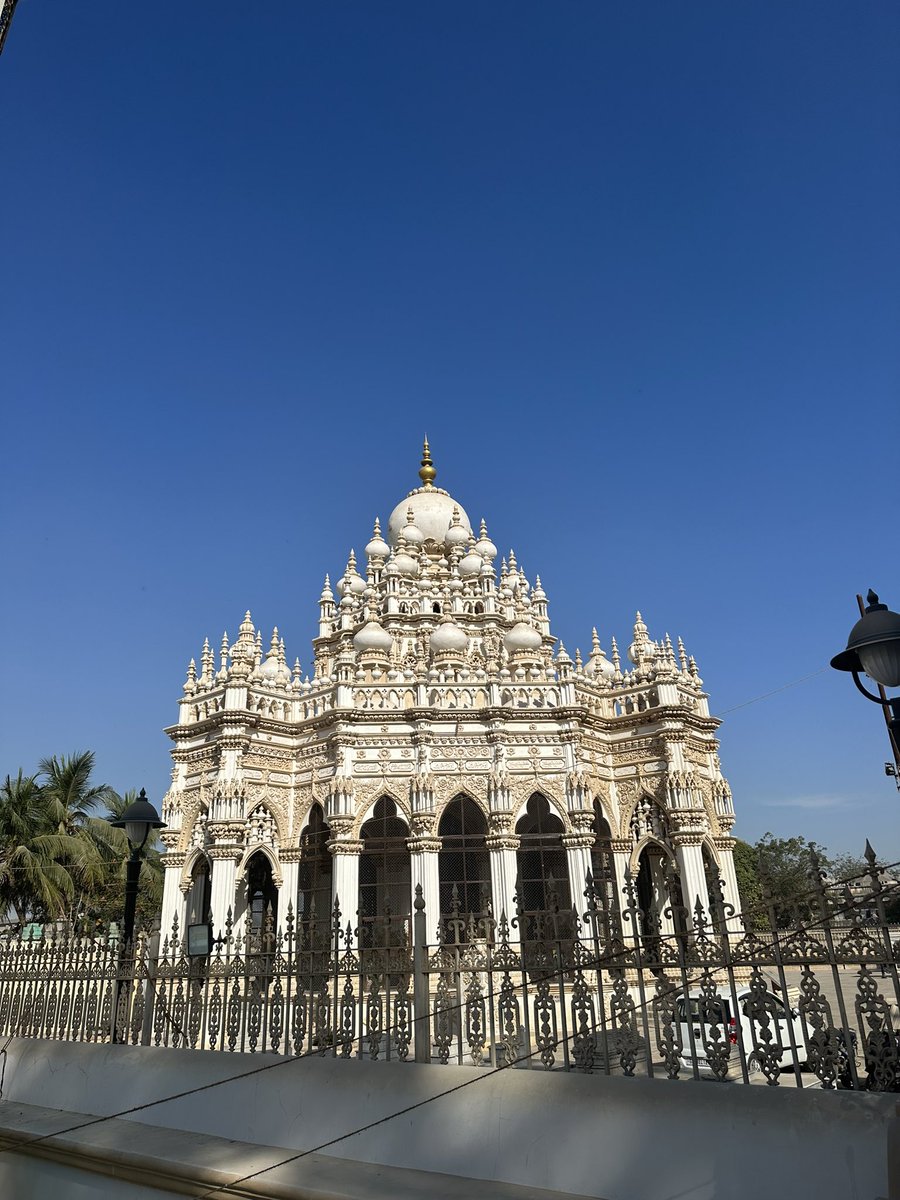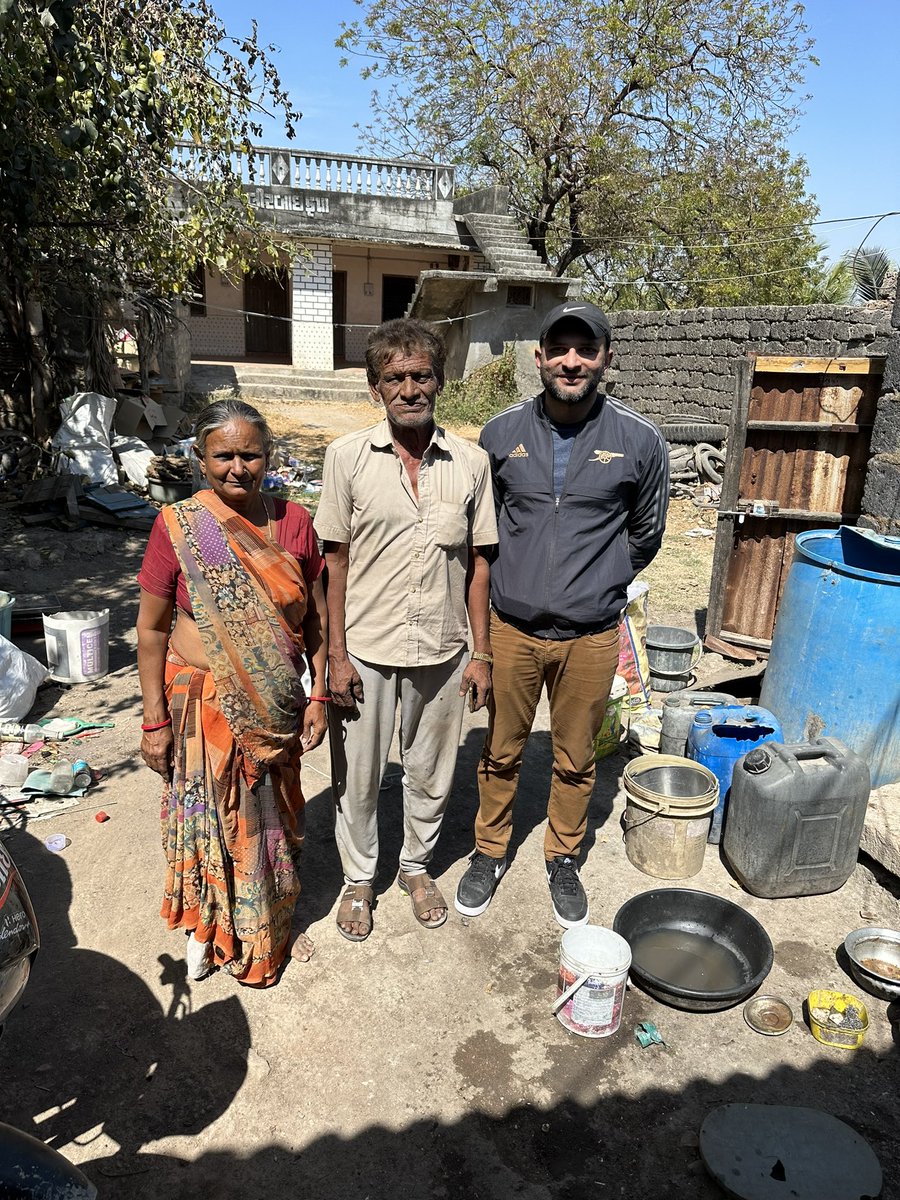I finally had the honor & privilege to visit my ancestral memon home in Bantva and Ghed Bagasra in Indian Gujarat.
What I experienced was surreal and what was unforgettable was the warmth of locals who I met while walking around.
🧵 on Memons, Gujarat, and protecting heritage.
What I experienced was surreal and what was unforgettable was the warmth of locals who I met while walking around.
🧵 on Memons, Gujarat, and protecting heritage.
We started by driving south from Rajkot, a city of ~2m people whose municipal budget is 2X that of Karachi’s!
The highway was top notch and we soon were in the city.
The Mahabat Maqbara is a sight to behold. We couldn’t go in as it is being renovated to promote tourism.

The highway was top notch and we soon were in the city.
The Mahabat Maqbara is a sight to behold. We couldn’t go in as it is being renovated to promote tourism.


From here we went further south to the town of Bantva.
It housed 4,000 memon households and now barely 3 remain.
I went to the Nagarpalika, a local govt office to find old birth records.
6 officials helped me find my grandparents’ birth records and pulled out old files.
It housed 4,000 memon households and now barely 3 remain.
I went to the Nagarpalika, a local govt office to find old birth records.
6 officials helped me find my grandparents’ birth records and pulled out old files.

Unfortunately, while we found various entries for Zulekhas giving birth in 1922/23, none of them seemed to be my grandfather’s mother.
But the fact that these records still exist — and entries to the 1950s have been digitized — was quite something.
A cup of tea and off we went.
But the fact that these records still exist — and entries to the 1950s have been digitized — was quite something.
A cup of tea and off we went.

Next up, the Bantva Mosque.
Built through donations of local memons, it was a sight to behold.
A trust from Dhoraji provides funding for upkeep and renovations were ongoing.
They expect these to be completed by Ramzan.



Built through donations of local memons, it was a sight to behold.
A trust from Dhoraji provides funding for upkeep and renovations were ongoing.
They expect these to be completed by Ramzan.




Everyone I spoke to in Bantva fondly remembers Edhi sb, a testament to the impact he has had.
Many locals now live in memon homes and they still remember a few names.
Every once in a while, they said, visitors come and they wished more came to reconnect with their homeland.


Many locals now live in memon homes and they still remember a few names.
Every once in a while, they said, visitors come and they wished more came to reconnect with their homeland.



Further south of Bantva is Ghed Bagasra, a tiny village where my paternal grandfather came from.
At the entrance is the shrine of Ismail Peer, which is over 500 years old.
A Hindu priest present there told me all faiths come here to pray, as the Peer’s tomb has mystical powers.



At the entrance is the shrine of Ismail Peer, which is over 500 years old.
A Hindu priest present there told me all faiths come here to pray, as the Peer’s tomb has mystical powers.




Some of my relatives are apparently buried on these grounds, but there was no indication of old graves.
We walked around the village, where Govind bhai took me around to show the old memon homes.
He invited me to his home and we had sweet milk, a reminder of my grandmother.



We walked around the village, where Govind bhai took me around to show the old memon homes.
He invited me to his home and we had sweet milk, a reminder of my grandmother.




When I came back to the village square, three other locals shared that the most senior member of the village was 105 years old.
I went to meet him to see if he recalled my grandfather who was roughly his age.
Bhima Ataa remembered growing up playing with memon boys growing up.

I went to meet him to see if he recalled my grandfather who was roughly his age.
Bhima Ataa remembered growing up playing with memon boys growing up.


But unfortunately due to his age he couldn’t remember much else. All he said was he played with many of them as a child but then they all left, never to come back.
But the homes remain and the locals remember the memons who lived here.
They wished more came to reconnect.
But the homes remain and the locals remember the memons who lived here.
They wished more came to reconnect.
We then went further south to Mandavpur Beach, which is very close to the village.
I finally knew why my grandfather loved going to Clifton Beach — older members of my family say our great grandfather loved the beach too.
Now it all made sense!


I finally knew why my grandfather loved going to Clifton Beach — older members of my family say our great grandfather loved the beach too.
Now it all made sense!



Very few memons get to go back to our ancestral homes, to see the land where our forefathers lived, and to reestablish our ties.
But technology means I can remain connected with those I met.
One day perhaps more can go and make efforts to protect our shared heritage in Gujarat.
But technology means I can remain connected with those I met.
One day perhaps more can go and make efforts to protect our shared heritage in Gujarat.
The warmth of the folks I met, their openness to engage, and the time they took out to help me retrace my ancestors’ step will forever remain with me.
Perhaps I can go more often, and more like me are blessed to go as well.
Until then, pictures and memories will suffice.
Perhaps I can go more often, and more like me are blessed to go as well.
Until then, pictures and memories will suffice.
• • •
Missing some Tweet in this thread? You can try to
force a refresh









